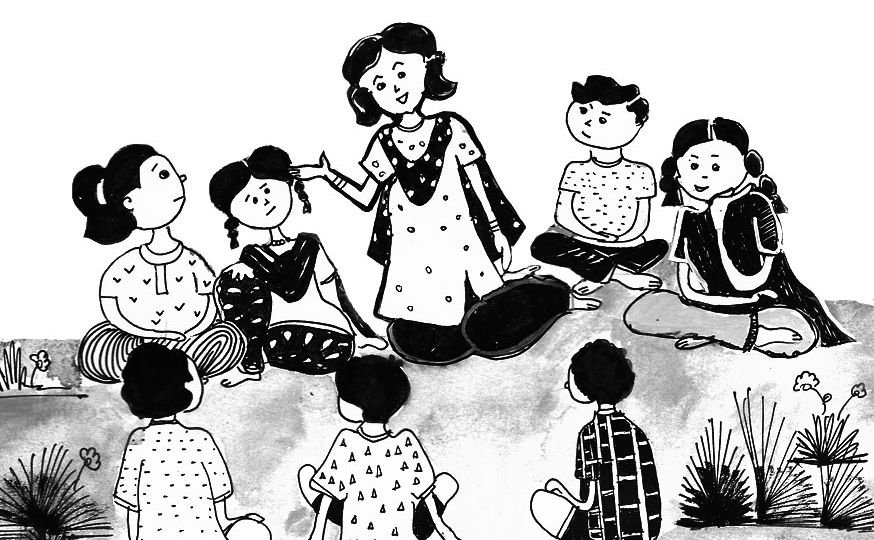
Author: Dr Murthy & Ms Radha Murthy
Title- Book Review: Stories Of Resilience by Ramendra Kumar, published by Protsahan India Foundation
Child abuse, more technically called, Adverse Childhood Experiences (ACE) has come into greater focus of mental health professionals in the last one decade. Though childhood was recognized as important for centuries, the recent evidence of the biological impact of adversities in childhood, raises both possibilities for prevention and care. It is estimated nearly half of all mental disorders have their origin in childhood adversities and abuse. The current focus of mental health professionals is to understand these associations and develop suitable interventions to mitigate the impact. (1,2,3,4,5,6,7,8)
The enactment of the POCSO Act, 2012, in India is a milestone. It has brought to focus the challenges of addressing adversities of childhood and child abuse in the country.
However, there are three challenges in this field of work. First of these is the reluctance to talk (stigma) about the issue. Second, is the feeling of helplessness among the public and professionals to address the causes and develop interventions to mitigate the impact. Thirdly, is to demonstrate the positive effects of interventions, so that there is optimism and social action rather than the feeling that ‘problem is too big to be addressed’.
The book, Stories Of Resilience by Ramendra Kumar is a true pathbreaker in this field.
Driven by the belief of Protsahan India Foundation, ‘the human capacity for adversity and burden is like bamboo- far more flexible than one would ever believe’, the book, ‘shares real stories of children who have mastered themselves in the face of extreme violence and adversity, and become tiny incredible leaders of the world around them’.
The ten stories bring to focus, (i) the different forms of deprivation/violence/abuse; (ii) the social circumstances associated with the ‘adversity’ (gender, parental loss, child marriage, alcoholism, teasing, drug abuse, sexual abuse) and more importantly; (iii) the value of interventions through emotional and physical support, play, creative channelization of the skills towards healing.
The problems are all around us and each one of us can make a difference.
The writing and the presentations of stories are exceptionally good. While reading the stories, the reader is compelled to think of the human dimension of the issue, look around to see what can be done to children in similar situations and most importantly see the positive results of actions to remedy the situations. The pictures in the stories, bring a sense of immediacy to the stories and have enriched the value of the book.
The stories have remained in our minds, for a long time after reading and is a testimony to the value of this area of work and the publication.
This is a book of HOPE.
This book is especially valuable as there are few publications in this area from India.
As a professionals in child rights and mental health, we see the approach of Protsahan India Foundation to address the issues, and the writing by Ramender Kumar as a MODEL for presenting the many other social issues in the society.
In short, the book addresses the three challenges, identified earlier:
- It makes it is possible to talk about a taboo topic.
- It offers examples of interventions each member of the society can take towards positive changes in the lives of children.
- It also provides the methods that can work in the Indian situation.
A big achievement in a small book of 10 stories.
This book should be essential reading for all professionals and personnel working with children, women and families in all developmental sectors.
Our sincere appreciation to Protsahan India Foundation for this initiative and especially to Mr. Ramendra Kumar for the creative way of presenting the issue of child adversities and resilience.
We look forward to reading more such STORIES of RESILIENCE.
By: Radha Srinivasa Murthy, Child Rights Activist, Former, Chairperson, Child Welfare Committee, Bangalore Urban, Bangalore. (radhasmurthy@gmail.com) & R. Srinivasa Murthy, Retired Professor of Psychiatry, NIMHANS, Bangalore. Former Staff of World Health Organisation, Geneva.(smurthy030@gmail.com)
Resources:
- Srinivasa Murthy, R. (2014) Impact of child neglect and abuse on adult mental health, Institutionalised Children Explorations and Beyond Volume 1, Number 2, September 2014 pp. 150-162 DOI: 10.5958/2349-3011.2014.01180.3
- Srinivasa Murthy, R (2015) Understanding child abuse and its impact on adult life, (Book review) Institutionalised Children Explorations and Beyond Volume 2, Number 2, September 2015 pp. 225-233.
- Harris, NB (2020) Toxic childhood Stress: The legacy of early trauma and how to heal. Houghton Muffin, London.
- Kennerly H (2009) Overcoming childhood trauma: A self help guide using cognitive behavioural techniques. Robinson. London,
- Trotman P (2020) Triumphing over trauma: Journeys beyond woundedness. Noah Publications. Darwin, Australia.
- Greenwald R (2016) Child trauma Handbook: A guide for helping trauma -exposed children and adolescents. Routledge, London.
- Logan R (2022) Childhood trauma: Bridges to overcome, heal your wounded inner child and recover from any form of childhood trauma. USA.
- Anderson CW(2022) How to overcome your childhood : Overcome childhood trauma, childhood emotional neglect, and live a life of fulfilment. Touch Scope books, Canada.

